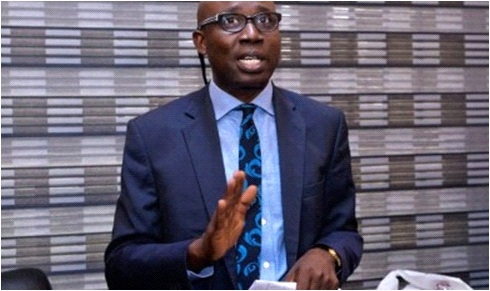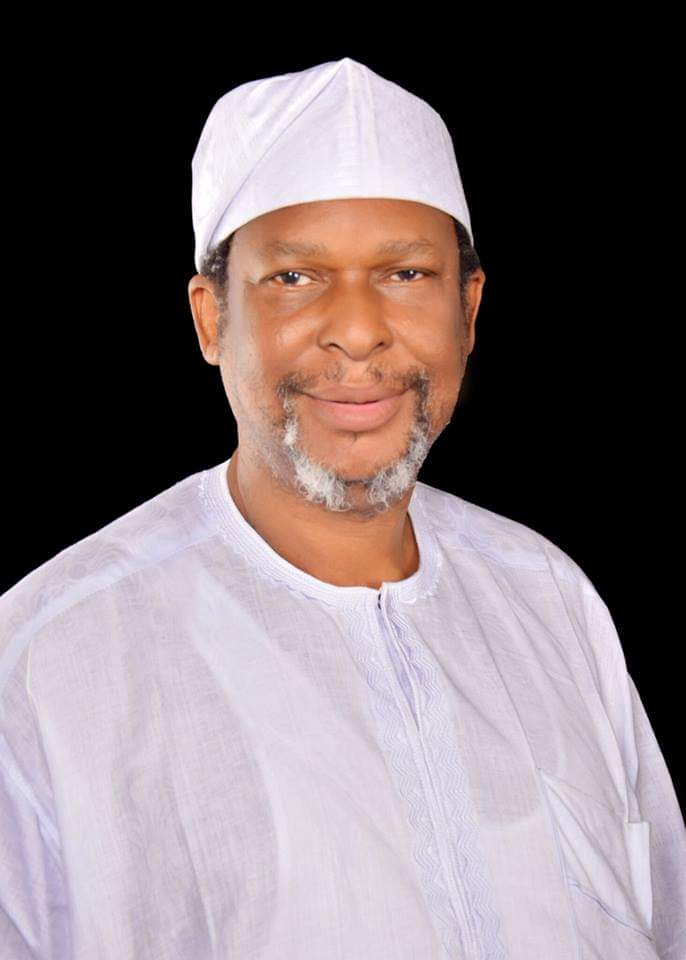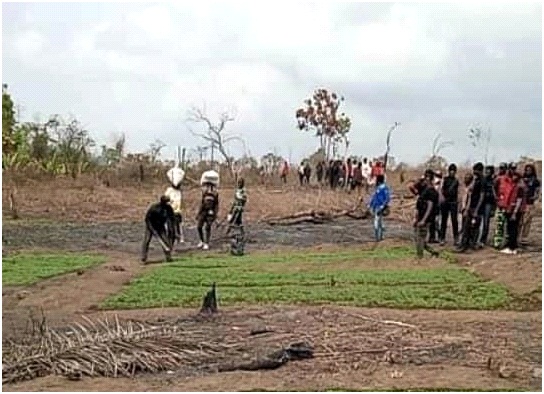Managing estate of a person who died intestate
A person who dies without a will is said to have died intestate, meaning that the local intestacy laws (of the state) will decide how their property such as bank accounts, real estate, securities, and other assets will be divided.
 Bolorunduro Esq
Bolorunduro Esq
A person who dies without a will is said to have died intestate, meaning that the local intestacy laws (of the state) will decide how property such as bank accounts, real estate, securities, and other assets will be divided. Real estate acquired in a different state than where the deceased person resided will be handled according to the intestacy laws of the state where it is located.
The laws of intestacy succession will vary depending on whether the person was single or married or had kids. In most cases, the estate of a person who died without making a will is divided between their heirs, which can be their surviving spouse, uncle, aunt, parents, nieces, nephews, and distant relatives. If, however, no relatives come forward to claim their share in the property, the entire estate goes to the state.
What Happens If a Single Person Dies Without a Will?
If a person dies single and childless, their surviving parents will get the estate. In case there are no surviving parents, the property will be divided among siblings (half siblings included) in equal parts. If one parent is dead, the property will be divided between siblings and the surviving parent. If a single person dies without creating a will and does not have any surviving parents, siblings, or descendants of siblings, the property will be divided equally among relatives on the father’s and mother’s side.
If a person dies single, but has children, the property will be divided among them in equal parts. The share of dead children (if any) will be passed on to their kids (the property owner’s grandchildren).
What Happens If a Married Person Dies Without a Will?
If a married person dies without a will, assets will be divided depending on how they were owned. While community property will go entirely to the spouse, separate property will be divided among the spouse, siblings, and parents. If the person was married multiple times, the entire property will pass on to the current spouse (if they have kids from the person). If, however, the property owner does not have kids from the current spouse, the property will be divided equally among them and the kids from another spouse.
Many states do not recognize domestic partnerships. If a person in a domestic partnership dies without a will, the state will decide how the property will be divided.
If a person living with a partner without marrying them dies, the surviving partner won’t inherit the property as intestacy laws only recognize relatives.

In Nigeria, when a person passes on without a Will, the assets of the deceased may be distributed using the customary laws. Alternatively, the immediate family members can apply for a letter of administration from a state high court or the Ministry of Justice.
Inheritance in Yoruba culture.
In Yoruba land, distribution of a deceased estate, who dies without a valid Will, is per stripe aka (idiigi). The properties will first be divided equally by the number of wives, and then the share due to each wife will be sub-divided equally among her own children. Polygamous families where an only child of a wife will get the same share as with the many children of another wife might bring up some dispute. In such cases, input from the family head might be necessary.
Another mode of estate distribution in Yoruba land is the ‘OriOjori’ mode where each child of the deceased enjoys an equal share of their father’s property. It has been argued that this mode will result in a fair distribution and prevent dispute within families.
Daughters have equal rights to inherit from their father’s property. Whereas, it is said that in Yoruba native law and customs, wives have no right of inheritance in their deceased husband’s estate. The way a wife can inherit from her late husband is when a property given to her can be proved to be a gift. However, in recent years, Yoruba customary marriage tends to be more liberal on wives inheriting from their husbands.
The rules of inheritance in Igbo land is not uniform but there are certain similarities that are explained below.
The oldest son of a deceased has exclusive rights to the entire estate left behind. He is entitled to a special property by virtue of being the eldest son. He has the right to manage and administer other properties of his deceased father for the benefit of himself and his brothers and sisters.
When a woman dies, whatever property she acquired before marriage, goes back to her family.
Under Igbo Customary Law, the female child was excluded from inheriting the property of their father or their husbands. This however stirred some discussion and in a Supreme Court decision in April 2014, the Court found that the Igbo inheritance rules that exclude women from inheritance violates the country’s 1999 Constitution which guarantees freedom from discrimination.
The same rules of succession that apply to the Benin also apply to most parts of Igbo land. In Benin Kingdom, the entire estate of the deceased belongs exclusively to the eldest son who acts like a Trustee for the other children.
There is also the custom, of returning properties of a deceased woman, which she acquired before her marriage, back to her family on her demise.
Under Sharia law, a daughter can inherit from her father’s estate. The widow to the deceased has the right to one-quarter of the estate if her deceased husband was without beneficiaries. If there is more than one widow, one-eighth portion of the deceased property is shared between them.
In general, women can acquire property. Likewise they can pass it on to their heirs, inherit from their deceased parents, husbands, brothers, sisters, daughters and other relations.

When a person who was married with children dies intestate (without a will) then difficult questions arise. Who are the beneficiaries entitled to the deceased’s property? Should the estate be distributed according to Customary Law or received English Law. These questions sometimes cause the members of the family to engage in a bitter dispute which may result in litigation.
One of such cases was Salubi v Nwariaku (2003). The deceased died intestate survived by his wife whom he married under the Marriage Act and left behind substantial property. There were two children born by said wife and two other children born out of wedlock. On the death of the deceased intestate letters of administration were granted to his wife and the first son but she declined to be an administrator. The eldest surviving child of the deceased, unhappy with the management of the estate by the first son, commenced legal proceedings to set aside the letters of administration. She also sought an order that the estate of the deceased be distributed to all the beneficiaries in accordance with the Administration of Estates Law which governs the estate of a deceased person who married under the Marriage Act. Section 49(5) of the Administration of Estate Law, states that, any property, which the deceased, who died intestate, might have disposed by a will shall be distributed in accordance with the provisions of that Law notwithstanding any customary law to the contrary.
The case of the first son was that the deceased being an Urhobo Chief and having died intestate, his property should be distributed in accordance with Urhobo customary law which entitled the eldest son to inherit the entire estate and distribute at his discretion. The trial court set aside the letters of administration and held that the estate should be administered in accordance with section 36(1) of the Marriage Act because the deceased had married under the Act and was no longer a person to whom customary law was applicable.
Section 49(1) of the Administration of Estates Law states that, the estate of a person who died intestate shall be distributed in the following manner; the surviving husband or wife shall take the personal chattels absolutely and in addition the estate (excluding personal chattels) shall be charged with the payment of a net sum of money equivalent to the value of one third of the estate, free of funeral expenses, to the surviving husband or wife plus interest from the date of death at the rate of 2½ % per annum until paid or appropriated and subject to providing for that sum the estate (excluding personal chattels) shall be held as follows; (a) one-third upon trust for the surviving husband or wife during his or her lifetime and subject to such life interest, on the statutory trusts for the children of the deceased; and (b) two thirds on the statutory trusts for the children of the deceased.
We must sound a note of warning and give a word of advice. To avoid the type of family dispute and the kind of litigation examined in this piece, it is advisable to consult a lawyer and prepare a will so that one does not pass on intestate leave behind problems for the family.

Every state has laws that direct what happens to property when someone dies without a valid will and the property was not left in some other way (such as in a living trust). Generally, only spouses, registered domestic partners, and blood relatives inherit under intestate succession laws; unmarried partners, friends, and charities get nothing. If the deceased person was married, the surviving spouse usually gets the largest share. If there are no children, the surviving spouse often receives all the property. More distant relatives inherit only if there is no surviving spouse and there are no children. In the rare event that no relatives can be found, the state takes the assets.
Intestate succession laws refer to groups of people such as “children” and “issue.” You may think you know just what the term “children” means, but don’t be too sure until you check your state’s laws. It’s not always obvious.
To qualify as a surviving spouse, the survivor must have been legally married to the deceased person at the time of death. Usually, it’s clear who is and isn’t married. But not always.
The simple term “children” can mean different things to different people—and under different laws. Many state statutes use the term “issue” to describe who should inherit in the absence of a will, meaning direct descendants of the deceased person (children, grandchildren, and so on).
Adopted children. In all states, in the absence of a will or other estate plan, legally adopted children inherit from their adoptive parents just as biological children do.
Stepchildren. Most states do not include stepchildren (children of the spouse of the deceased person who were never legally adopted by the deceased person) in their definition of children for purposes of inheritance. In a few states, however, it may depend on the circumstances of the relationship.
Foster children. Foster children do not normally inherit as “children” of the foster parents.
Children adopted by an unrelated adult or family. In most states, placing a child for adoption severs the legal tie between the child and the birth parents. The child can no longer inherit from the birth parents under intestate succession laws, and the parents can no longer inherit from the child.
Children adopted by a stepparent. A child who is adopted by a stepparent might still inherit from the biological parents; it depends on state law.
Children born after the parent’s death. A child conceived before a parent’s death but born after the death (sometimes referred to as a “posthumous” child) inherits under intestate succession laws just as do children born during the parent’s life.
Children born outside marriage. A child born to unmarried parents always inherits from his or her birth mother, unless an unrelated family adopts the child. If the parents were never married, usually the child must show some kind of proof to inherit from the father.
If an intestate succession law includes the deceased person’s “sisters and brothers” or “siblings” as heirs, this group generally includes half-siblings and may even include half-siblings who were adopted out of the family.
Obviously, an heir who has died can’t inherit. But if the heir was a close relative, such as a child of the deceased person, his or her offspring may be entitled to take some or all of what their parent would have received. Figuring out whether this is the case can be tricky, but it’s essential that you do so before distributing assets.
Rights of a Deceased Heir’s Descendants
Intestacy laws often provide that if one of a group of heirs has died, his or her children inherit their parent’s share. In other words, they take the place of the parent. According to this concept (called the “right of representation”), children (or, in some cases, grandchildren) stand in the place of their deceased parent (or grandparent) when it comes to inheritance. Figuring out exactly who should inherit can be complicated depending on state law.

If there is no surviving partner, the children of a person who has died without leaving a will, will inherit the whole estate. This applies however much the estate is worth. If there are two or more children, the estate will be divided equally between them.

If there is no surviving partner, the children of a person who has died without leaving a will inherit the whole properties. This applies however much the properties is worth. If there are two or more children, the estate will be divided equally between them.

If the decedent created no will or trust and was not married but has children. All assets are distributed to the decedent’s children. If there is more than one child, then assets are shared equally amongst the living children. If a child predeceased the decedent, that child’s children will take that child’s share.










